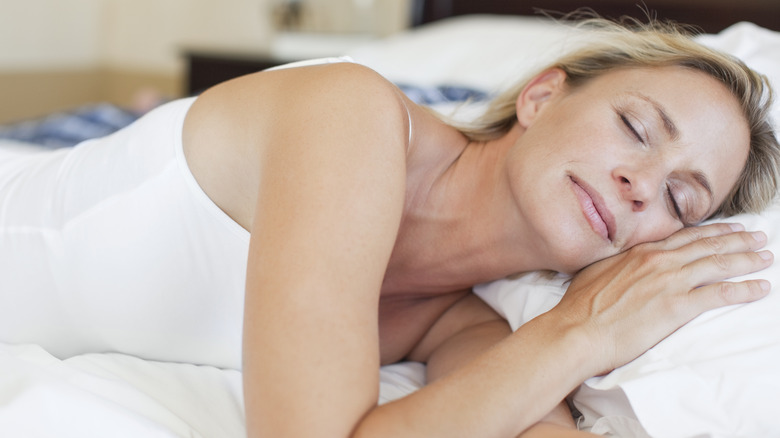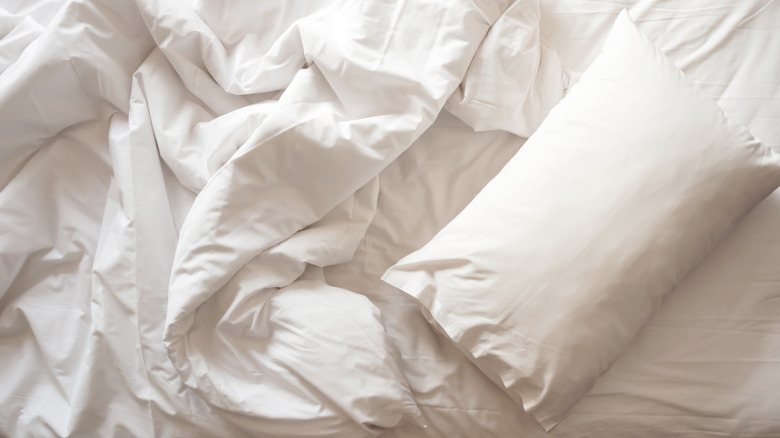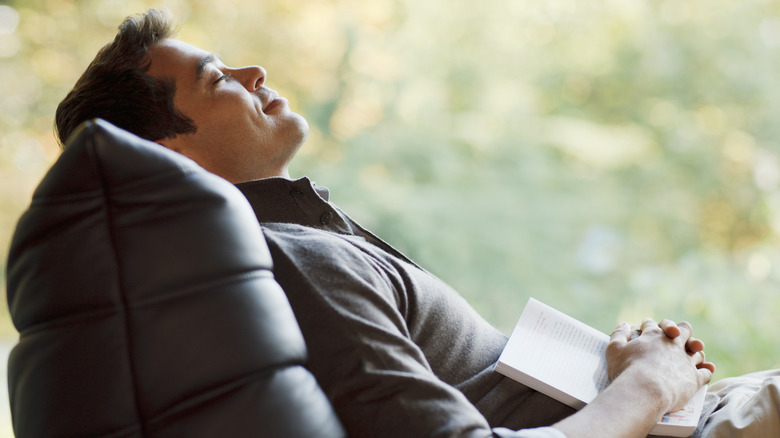The Most Beneficial Power Naps Should Be Short And Sweet
Naptime is often synonymous with babies and toddlers since they need it most for proper growth and development. Adults don't usually have scheduled naps in their day-to-day lives, but should they? As sleep and job productivity are directly related, some companies have connected the dots and allow their employees to literally sleep on the job to achieve better performance.
According to Yahoo Finance, if you're employed by Google or Nike headquarters, you can take a nap while you're clocked in if you need to — and are even encouraged to do so. Their results showed increased productivity and an overall rise in employee satisfaction. Scientific research widely recognizes the midday slump and recommends taking a short nap to perform afternoon tasks better, per an article published in the journal Plos One.
Whether you haven't gotten enough sleep during the night or you work third shifts, a power nap is a great way to restore your energy until you fix your sleeping schedule.
How to properly power nap
You've likely overextended your naps in the past, which can make you disoriented and even more tired afterward. Dr. Safia Khan, a specialist in sleep disorders, told Everyday Health, "When you've been sleeping longer than 30 minutes, it's more difficult to wake up, and you wake up feeling groggy versus when waking up from lighter sleep."
So, a power nap should be short and sweet — no more than 30 minutes. Khan emphasizes that you don't need power naps to function normally if you have a healthy sleeping schedule, but taking one anyway is absolutely normal.
According to research conducted by doppel, the best time to sleep during the day is either in the morning or the early afternoon since our circadian rhythms make us more deep-sleep prone later in the day. Also, caffeine, sugar, and fatty foods should be avoided beforehand. Then, all there's left to do is find a comfy, quiet place to lie down for a successful power nap.
Why are power naps beneficial?
Taking a nap has numerous benefits. It can improve your mood and overall awareness, concentration, and short-term memory. After a busy shift or a bad night's sleep, a short power nap will likely get you out of a slump.
Even though they're good, relying on power naps to get you through the day isn't great for you in the long run. Per Everyday Health, Dr. Samuel Gurevich, a pulmonologist and sleep apnea specialist, advises not to treat naps as solutions to bigger problems like chronic insomnia. Properly catching up on sleep during the night should be a priority for your overall well-being.
While a power nap from time to time won't actually cure sleep deprivation, taking a short snooze can serve as a quick fix on a sleepy day if done right. Get comfy and try to cop those 30 minutes the next time you feel sluggish before bedtime!


